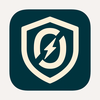Most people think of the Dark Web as some digital underworld full of hackers, hitmen, and fake passports. That’s not entirely wrong — but it’s not the whole story either.
I first heard about the Dark Web more than a decade ago, back when I was just a curious tech guy messing with command lines on Ubuntu and downloading Kali Linux ISOs at 2 a.m. I thought the Dark Web was something out of a thriller — a place where only cybercriminals dare to go.
But over time, I realized something:
- The Dark Web isn’t just about crime. It’s also about freedom.
- And it’s a warning sign for the surface internet we all take for granted.
What Exactly Is the Dark Web?
Let’s break it down real quick.
- The Surface Web is what you use every day — Google, YouTube, Wikipedia.
- The Deep Web includes stuff that’s not indexed — like your online banking data or internal government systems.
- And then there’s the Dark Web — a hidden layer you can only access using special tools like the Tor browser, which routes your traffic through encrypted relays.
You won’t find .com domains here. Instead, you’ll see URLs like: 7g4x2m7v2abcxyz.onion
And they’re not just hard to guess — they’re designed to be untraceable.
The First Time in 2019 I Entered the Dark Web…
I felt like I had landed on a strange, silent planet. Sites loaded painfully slow, looked like something from 2003, and had zero branding — but what I saw was… raw.
There were forums trading leaked databases: email-password combos, full credit card dumps, even medical records.
One guy was advertising ransomware-as-a-service.
Another was offering “revenge packages” for angry exes.
Disturbing, yeah — but also revealing.
Then came the marketplaces. Think Amazon, but for illegal goods:
- Counterfeit documents
- Stolen accounts
- Malware tools
- Even fake vaccine certificates back during COVID
Some vendors had 5-star ratings. Others had money-back guarantees.
And that’s when it hit me: this place runs on trust, just like any normal marketplace. The irony was almost poetic.
But Not Everything Is Evil
In the middle of all this chaos, I also found whistleblower platforms, privacy communities, and journalists hosting secure dropboxes. The Dark Web isn’t all crime — it’s also a safe haven for people living under censorship, surveillance, or totalitarian regimes.
I came across a forum where people from countries like Iran, Russia, and China were discussing human rights, digital freedoms, and sharing banned books. For them, the Dark Web isn’t a playground — it’s a lifeline.
What I Learned (and Why You Should Care)
- The Dark Web is a reflection of the real internet — just unfiltered. Everything good and bad is amplified here.
- Your data is probably already there. I found leaked logins that looked painfully familiar (yes, even people I know). 3.** It’s not just about tech — it’s about ethics, privacy, and power.**
If you’re in cybersecurity or tech, you can’t afford to ignore the Dark Web. Not because you’ll find anything glamorous — but because this is where the future of privacy battles is playing out.
Final Thoughts
No, I don’t “often hang out” on the Dark Web. I don’t recommend diving in without preparation. But I’m glad I looked. Because now I understand the difference between paranoia and awareness.
And if you’re still using the same password for every site — well…
Someone might already be reading your emails.
Follow me for more real-world insights into cybersecurity, tech culture, and digital survival. This is Hugo Valters, signing off from the shadows.
X.com: https://x.com/hugovalters
bsky.app: https://bsky.app/profile/hugovalters.bsky.social
YouTube: https://www.youtube.com/@hugovalters
Homepage: https://www.valters.eu
GitHub: https://github.com/hugovalters
GitLab: https://gitlab.com/hugovalters
Medium: https://blog.valters.eu
By Hugo Valters



Top comments (0)